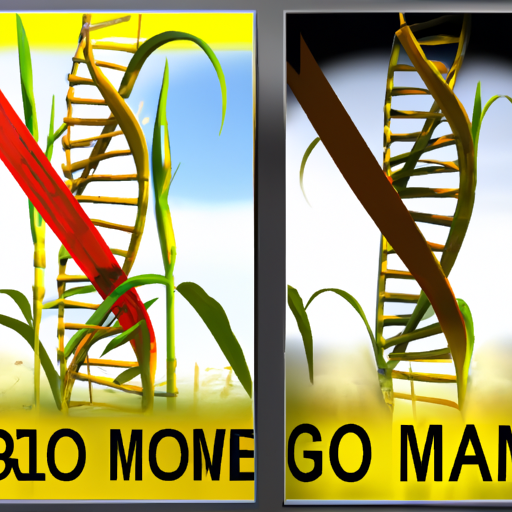Genetically Modified Organisms (GMOs) - Boon or Bane?
In the humanitarian quest to solve world hunger and ensure abundant yield of crops, the world has turned to science and biotechnology, giving birth to Genetically Modified Organisms (GMOs).
The Science of GMOs and Increased Yield Potential
From the perspective of biologists, GMOs are organisms whose genetic material has been artificially manipulated in a laboratory through genetic engineering. They argue this creation has the potential to increase yield and dramatically improve pest resistance. In a study published in the Journal of Agricultural and Food Chemistry, researchers found that GMOs could increase crop yields by a staggering 21% and decrease pesticide usage by 37%.
GMOs and Environment
However, environmentalists see a different side of the story. They argue that despite the increased yield, GMOs can negatively impact the environment by inadvertently promoting the development of 'superweeds' resistant to herbicides. This leads to increased use of chemicals further harming the surrounding ecosystem, as suggested in a study published in the International Journal of Agricultural Sustainability.
Farmers and GMO Usage
Farmers, on the other hand, are caught between the promise of high yield and the risk of environmental harm. For many, the immediate monetary benefits provided by GMO crops can mean the difference between prosperity and bankruptcy.
Consumers and Health Concerns
Consumer concerns predominantly focus on health risks linked to consumption of GMOs. While the FDA maintains that GMOs are safe, certain studies suggest that consuming GMOs may trigger allergenic responses or contribute to antibiotic resistance - a contentious issue within the scientific community.
Policymaker Perspectives and Ethical Concerns
Policymakers, responsible for setting regulations, face challenges balancing economic interests and societal well-being. Ethical concerns also arise due to the manipulation of the natural world and questioning if high-yield GMOs will substitute traditional farming practices, pushing marginal farmers out of business.
Conclusion
In conclusion, the debate on GMOs is complex with valid perspectives on all sides. It's undeniable that GMOs present an attractive solution to increasing food demands. Yet, concerns related to their unintended influence on the environment, health, and traditional farming practices can't be ignored. As we move forward, the challenge lies in balancing the benefits of GMOs with their potential repercussions- a task that demands rigorous scientific investigation and sound policy-making.


















Comments
Leave a Comment